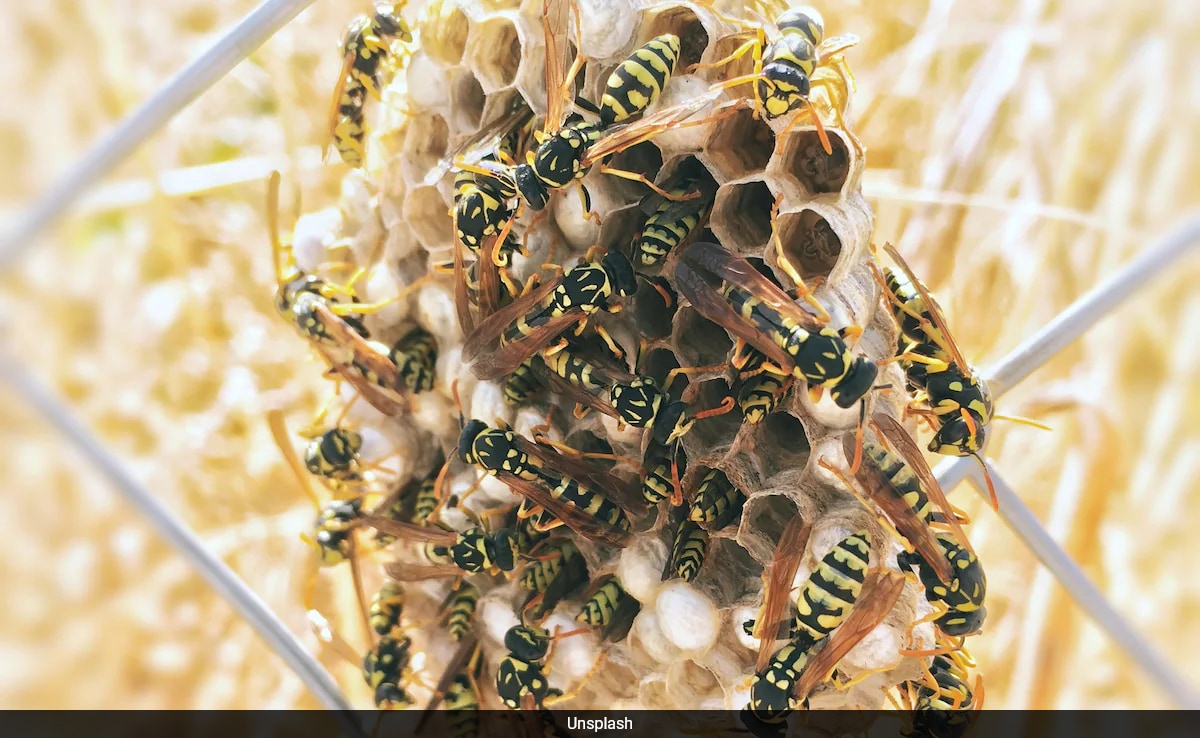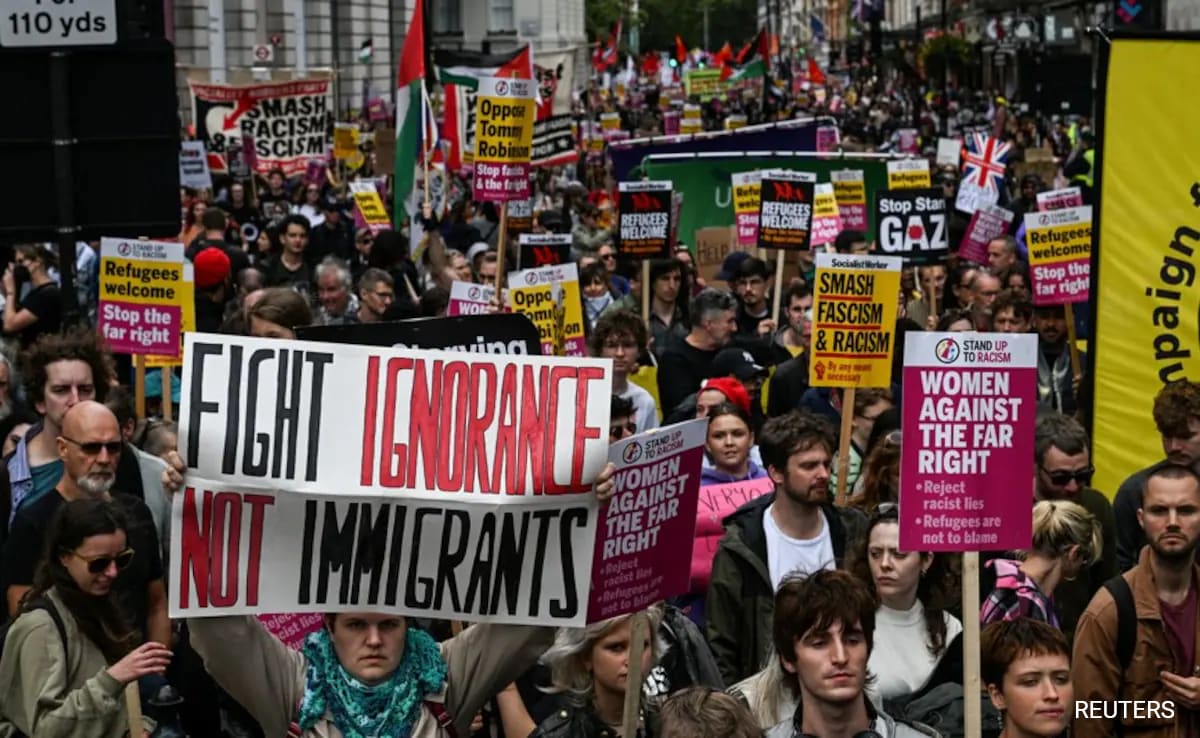She had been among the first migrant parents separated from their children by the Trump administration. Agents pulled her away from her 6-year-old daughter when they crossed the border in July 2017. Four years later, they were to be among the first families reunified by a different president, participants in a rare American experiment in reparations.
But when she arrived at the Houston airport in June, the immigration officer looked skeptically at the visa and then at her.
âCome with me,â he said.
He escorted Chic to a small waiting room and left her there. An hour passed, and then another. She missed her connecting flight to Florida, where Adelaida Reynoso, now 10, was waiting.
Chic texted her daughter: âI donât know whatâs going on.â
Adelaida, in Fort Myers, Fla., turned to her aunt.
âSheâs not coming,â she said.
President Biden has promised to reunite hundreds of families separated at the border under his predecessor. But almost every step of that process has been complicated: finding the parents, now divided among 22 countries, helping them to get passports â even getting them through immigration.
For the roughly 100 families who have been reunited, the complications continue. Parents and children have struggled to rebuild bonds after years apart. Some no longer speak the same language. Some children have no memory of their parents at all â theyâve grown up calling other people âmomâ and âdad.â
The reunified parents are entering the United States on temporary visas with no guarantee that they wonât be deported again and separated from their children for a second time. The Biden Administration this month withdrew from settlement talks that would have offered the families financial compensation for their ordeals. Officials are debating which parents should be barred from reentry for prior offenses. Theyâre still trying to assess how many parents were separated in the first place.
The effort is challenging in part because itâs so unusual: The United States has never before attempted to relocate hundreds of people it has deported.
Chic looked around the immigration office. Some people were using the tinfoil blankets she remembered from Border Patrol detention facilities. She looked down at her own dress and felt silly for wearing something that made her stand out. She wondered: Is that why they pulled her aside?
âItâs better not to wear things like that,â one woman whispered to her in Spanish.
Chic felt even more naive for believing that the government that separated her from her daughter would now reunify them.
An immigration agent called her name.
âWhereâs MarÃa Chic?â
**
She had left her village in northern Guatemala a week earlier, hugging her elderly parents, walking the zigzag dirt path down the mountain for what she hoped would be the last time. Past the sign that marked the city limits of Sacapulas. Past the row of homes built with remittances sent home by Guatemalans working construction in Florida.
She had left before. Each time, she had been turned around.
In 2017, she paid a smuggler $10,000 to get her and Adelaida to the border, where they planned to request asylum. They traveled with Chicâs sister, Patricia, and Patriciaâs 1-year-old daughter.
But when they crossed into Arizona, it was only Chic and Adelaida whom Border Patrol agents separated, without explanation. Adelaida was sent to a foster family in New York, and then on to Patriciaâs apartment in Florida. Chic was deported alone, returning to Sacapulas in a bus, carrying a mug shot of her daughter the government had photocopied.
A year later, Chic went back for Adelaida, paying a smuggler again to get her to the border. She called her daughter from the Arizona desert to say that she had arrived and would soon leave for Florida. But within hours, Chic was apprehended and then deported alone, again.
Now here was the third attempt: Chic with her black backpack, on her way to Guatemala City. This time, she had an appointment at the U.S. Embassy for a visa that was supposed to clear the way to her daughter.
âDress your very best,â the woman working with the U.S. legal organization representing Chicâs case advised in a voice memo. âYou want to impress the Americans.â
But Chic was prepared for the effort to fail once again. At first, she didnât tell Adelaida she was coming. She requested only two days of vacation from her office job in Sacapulas. She packed only one change of clothes.
She had heard about Bidenâs reunification plan on the news. She had her own lawyer, who called her after Bidenâs inauguration and said, âHopefully soon youâll be done waiting.â And then, out of nowhere, on a Friday afternoon this spring: âGet ready to travel, MarÃa.â
And yet it still didnât make sense to her. Why would the U.S. government separate her only to take her back? Across Central America, where more than 1,000 parents separated by President Donald Trump remain apart from their children, the same mixture of hope and confusion has proliferated.
One mother held a vigil outside of the U.S. Embassy in Guatemala, holding a sign that said, âPlease give me back mi son.â A girl in Houston wrote a letter asking Biden âto please bring my dad back.â
Other families despaired in relative obscurity, their names on a growing spreadsheet managed by the Department of Homeland Securityâs Family Reunification Task Force. Some had found the administrationâs new website â Together.gov â and clicked the link: âRegister to Reunite.â
Chic was told that she would be among the first to see her child again, part of a pilot program preceding the mass reunification Biden had promised. So there she was, climbing in the passenger seat of her uncleâs car, and then weaving through the curvy streets that led to Guatemala City.
**
When she got to the address in the capital she had been given, a small hotel next to a bus station, a dozen mostly Indigenous Guatemalans were already waiting silently in the lobby, luggage at their feet.
At first, Chic wasnât sure who they were. And then she realized. She inched quietly next to a broad-shouldered man with a mustache.
âYou were also separated?â Chic asked him.
His middle name was David. He was 46, from a village north of Chicâs, deep in the western highlands. Border Patrol agents had taken his 11-year-old son from him when they crossed the border in 2018, at the height of the Trump administrationâs zero tolerance policy.
âAnd youâre here to be reunified?â Chic asked.
âThatâs what they told me,â he said.
For a while, neither of them spoke. Then David looked at Chic and blinked hard.
âDo you think this is really going to work?â
âGod, I hope so,â Chic said. Then she launched into her own story.
She and Adelaida had spoken almost every day since 2017 on video calls, she explained, until the image Chic had of her daughter had been replaced by the image on the screen of her cellphone. Adelaida had grown 11 inches. Her English was better than her Spanish.
âShe keeps asking me when weâll be together,â Chic told Lisandro. âFor four years sheâs been asking.â
Adelaida was now living in Florida with Patricia, 32, her aunt who had traveled with them to the border. But Chic and her sister didnât speak any more. The separation had torn them apart.
Chic said Patricia didnât hug Adelaida, that she could be callous and mean. Patricia said she was doing her best to raise Adelaida on meager earnings and that Chic was ungrateful.
Patricia and Adelaida also lived with a man named Juan, whom Chic had met briefly as a girl in Sacapulas, before he immigrated to Florida in 2007. Juan, 34, and Chic had reconnected over the phone years ago and started a long-distance relationship.
Juan had called Chic each afternoon when he finished his landscaping job, his face flush from the Florida heat. It was Juan who had loaned Chic the money to pay the smuggler, both times. Chic lived in the house Juan had built back in Sacapulas with his earnings in the United States. He had yet to see it. Adelaida called him âdad.â
It felt to Chic as if her whole family had cohered in Florida while she was in Guatemala, leaving her on the outside. During Adelaidaâs birthday parties, she was the square box on the FaceTime calls, peering through the screen, until she hung up and cried alone.
David listened. More parents had arrived at the hotel; some were eavesdropping. When they shared their own stories, they would describe the moments of separation almost identically. But in each case, the familial chaos and dislocation that came next was different for each parent.
Davidâs son was also in South Florida, about an hour from Adelaida. But his wife and other children were still in Guatemala. To reunite with one of his children, he would have to leave the others. His son, who had slipped in and out of depression, needed him in Florida.
âSo thatâs my trouble,â he said. âOne solution creates another problem.â
This time, it was Chic who nodded, permitting herself, briefly, to feel fortunate.
**
The immigration agent at the Houston airport handed Chic her passport without explanation.
He pointed her to the terminalâs exit. By then, her lawyer had heard about Chicâs detention. She tried to reach out to a contact at the Department of Homeland Security.
âHow does this happen?â lawyer Carol Anne Donohoe demanded. âHow do you stop a mother whose reunification was approved by the president?â
Chic was lost in the departures terminal. The only other flight sheâd ever taken was her deportation back to Guatemala, in handcuffs.
She found her way onto the last flight to South Florida. As the plane took off, she looked out the window and rattled through her concerns. She held her phone in her hand. A photo of Adelaida lit up the home screen.
âWhat if sheâs afraid to be near me?â
âWhat if sheâs angry?â
âWhat if I donât recognize her?â
She stared out the window.
At the Fort Lauderdale airport, her eyes darted around looking for Adelaida. She could barely see over the shoulders of the crowd. When the automatic doors opened into the arrivals terminal, there was her daughter, wearing a purple shirt that said Soy princesa de dios.
They embraced. Adelaida let out a shriek and then began wailing, a deep guttural cry. Tears streamed down Chicâs cheeks.
âIâm so sorry. Iâm so sorry. Forgive me,â Chic said.
They rocked back and forth for a few minutes.
âDo I look different?â Chic asked, stroking her hair.
Adelaida looked up at her.
âA little bit.â
Then Chic looked at Juan, who was standing to the side, visibly nervous. They hugged awkwardly. Juan wiped away tears. Patricia, he said, hadnât come.
They walked to the parking lot and drove away, Chic and Adelaida cuddling in the back seat.
The apartment was on the second story of a run-down apartment building near downtown Fort Myers. Chic walked slowly up the stairs and through the front door.
She saw where her daughter had been living for four years. The floors were peeling away. The walls were yellowed. There were 13 people living in two bedrooms. Two men shared a bed in the living room.
âThis is where you live?â she asked. âItâs worse than Guatemala.â
Patricia walked by Chic without making eye contact.
âHello, MarÃa,â she said coldly to the sister she hadnât seen in four years.
Chic, still holding her backpack, said nothing.
**
Being together was meant to be the easy part, Chic thought. But every day seemed to bring a new wrinkle.
Some were small.
She and Adelaida spent hours cuddling on the bed in the living room. But Chic caught herself talking to Adelaida as if they were on a video call, drifting into the way they ended their old phone conversations.
âI miss you,â she said.
âIâll see you soon.â
And then sheâd come to with a jolt.
âI keep forgetting that weâre really together,â she said. Adelaida giggled.
Other moments were harder to move past. Sometimes, without understanding why, Adelaida hit her mother. Playfully, at first, and then hard enough that it hurt.
When Chic told her that she and Juan would be getting married, Adelaida screamed and ran away.
âI guess itâs that I get jealous,â Adelaida said. âItâs hard to explain.â
She had always been the easy child, the best student, the mature one. She learned English seemingly overnight. She won her school districtâs good citizen award for helping other newly arrived immigrant students who got lost in the halls.
âProbably the best student Iâve had in my career,â her fourth-grade teacher said.
What had changed? Adelaida tried to explain her feelings to a psychologist the government had contracted, to her third-grade teacher, Mrs. Severance, and to her aunt, Patricia.
But the solution sheâd arrived at was her own invention: She tried to erase the separation from her memory.
âLike it never happened,â she explained.
Which meant there was a list of things she kept to herself.
She didnât tell her mom that she had written a letter to her teacher on her first day of school, which began: âThereâs something you need to know about me,â and went on to explain the separation in detail.
Or that she still had dreams that they were being torn apart.
Or that she worried it would happen again.
âI need to stop thinking about it,â she said.
âLike put it in a drawer and shut it.â
And so, eventually, she agreed to wear a flowery dress at her motherâs wedding and to walk down the aisle with the ring.
The ceremony was at a small evangelical church off a highway in Fort Myers. Almost the entire congregation was Indigenous Guatemalans, many of them from Chicâs village. When the pastor announced Adelaidaâs name, she was shaking with nerves.
Juan had said that he was ready to go back to Guatemala, and she wondered what that meant for her. Her motherâs immigration status remained tenuous: Chicâs humanitarian parole would expire in three years. After that, she could be deportable, and the family could be divided again. It was a possibility they had each considered, but rarely discussed.
Adelaida waited for her mother at the altar. She swallowed hard. She was supposed to be happy, she thought. And so when the ceremony was over and people asked her if she was having a good time, she smiled and gave the answer sheâd rehearsed.
âItâs the best day of my life,â she said.
**
Chic still didnât have her work permit, so she spent most of her days in the apartment.
The Biden administration has agreed to fund mental health services for reunified families, but it is doing little else. Some parents, stuck in long delays for work permits, have decided to seek jobs illegally to pay for food and housing.
News in October of a possible financial settlement â with possible reparations of $400,000 per person â outraged Republicans and appeared to catch even Biden off guard. The administration last week pulled out of those settlement negotiations, leaving the courts to decide whether separated families will be entitled to compensation. In the meantime, advocates say, some reunified families are living on the brink of homelessness.
Chic and Adelaida shared the same bedroom as Patricia and her two children, the five of them sprawled out on two mattresses on the floor. Juan slept in the living room, sharing the bed with a friend.
âNot what I imagined,â Chic said.
She reached out to some of the parents whom sheâd met at the hotel, who had also been reunified with their children.
She shot off the texts: âHow are things for you?â and âHow is your daughter?â She wondered if others would articulate the same mix of joy and fear and discomfort that she was now feeling. The answers trickled back.
In Indiantown, Fla., about an hour away, another mother had been reunified with an 11-year-old daughter, who refused to live with her. The girl had forgotten the Indigenous language of her mother, and they could barely communicate.
David was also in Florida with his son. Now his video calls were with the other half of his family, whom he had left behind in Guatemala. Without a work permit, he was cautiously working odd construction jobs, aware that he was breaking the law, and could be deported if he was caught.
âBut how else are we supposed to eat?â he asked.
Most of the separated parents, though, were still in Central America. Chic heard from them, too. Some tracked her down on Facebook after Univision, the Spanish-language television channel, aired a story about reunification.
âHow did you do it?â one mother asked.
âWhat is it like to finally be with your daughter?â asked another.
Chic kept her answers short and positive. She had been posting pictures almost hourly of Adelaida with heart emoji and captions: âMy loveâ and âTogether forever.â
But there was something about her daughter that felt unknowable now. Adelaida kept a diary that she wouldnât share. She whispered things in English â often to herself, sometimes to a reporter â when she didnât want her mom to understand. Sometimes, they sat next to each other in silence, Chic scrolling through photos of Guatemala on her phone.
One day, with Adelaida at school, Chic walked down the stairs into the parking lot of the apartment building into the blinding Florida sun. Every afternoon, a woman sold corn from the back of her car.
âYouâre new here, right?â she asked Chic. Chic nodded.
âDid you come with your child?â the woman asked.
Chic paused, thinking of ways to reduce her story into something short and true.
âNo,â she said. âI came alone.â
Read more:
.png)











 English (United States) ·
English (United States) ·  Turkish (Turkey) ·
Turkish (Turkey) ·